Relationships are built on trust, understanding, and commitment. These are the pillars that hold a relationship steady, even when storms come. And just like any challenge in life, some storms are tougher than others. One such challenge is when you are dating someone with Relationship OCD (Obsessive-Compulsive Disorder).
This condition can bring unique difficulties, but with knowledge and patience, you can meet these challenges head-on. When you are dating someone with OCD and anxiety, both of you must make an effort to understand this disorder.
When both of you are informed, you can navigate the challenges together, strengthening your bond in the process.
So, when you are dating someone with OCD and anxiety, including ROCD, it’s not just about facing the difficulties; it’s about growing closer, understanding deeper, and building a relationship that’s resilient and nurturing for both.
Related: What Is Relationship OCD? Symptoms, Causes And How To Cope With It
What Is Relationship OCD?
Relationship Obsessive-Compulsive Disorder (ROCD) is a specific subset of Obsessive-Compulsive Disorder (OCD) that primarily manifests in romantic relationships. People with ROCD experience persistent, intrusive thoughts, doubts, and fears related to their relationship’s quality, their partner’s affection, or their own feelings.
These thoughts and doubts can be distressing, leading to significant emotional distress and impairs their ability to engage in healthy relationship dynamics.
People with ROCD often engage in compulsive behaviours aimed at alleviating their anxiety and uncertainty. These compulsions can include seeking reassurance from their partner, constantly seeking evidence to validate their feelings, or engaging in mental rituals such as rumination or mental checking.
Despite recognizing that their thoughts and behaviours may be irrational, they find it challenging to break free from the cycle of obsessions and compulsions.
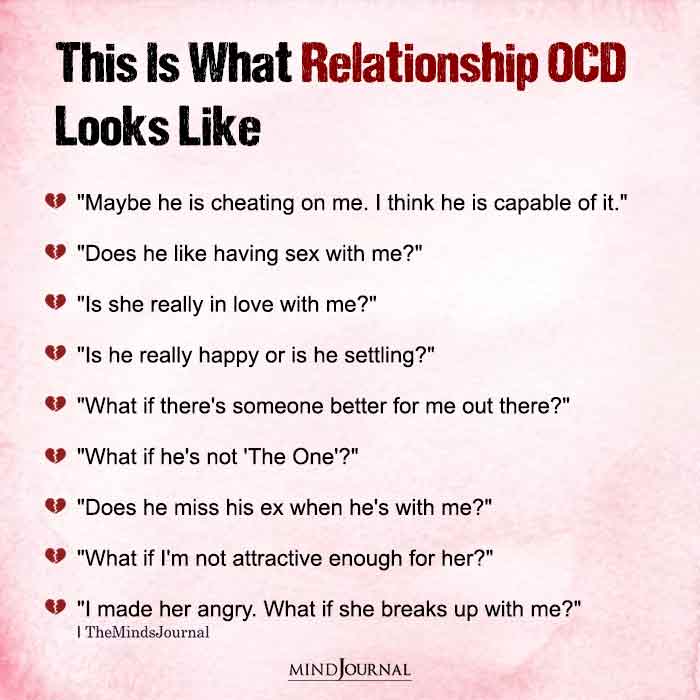
What Are The Signs Of Relationship OCD?
If you suspect you’re dating someone with Relationship OCD, then keep a lookout for these signs:
- Excessive doubt about the compatibility and suitability of your partner.
- Constantly questioning the authenticity and depth of your feelings for your partner.
- Persistent doubts about your partner’s love and commitment.
- Frequent comparison of your relationship with others, seeking reassurance that it measures up.
- Intrusive thoughts or mental images of infidelity or betrayal.
- Compulsive need for reassurance from your partner about their feelings.
- Repeatedly analyzing and overthinking your relationship, seeking certainty about its future.
- Engaging in repetitive relationship-related rituals, such as mentally reviewing past interactions or checking for signs of affection.
- Fear of making the wrong decision about staying in or ending the relationship.
- Feeling overwhelmed by a sense of responsibility for the relationship’s success or failure.
- Avoidance of situations or activities that trigger relationship-related anxiety.
- Heightened anxiety or distress when there is uncertainty or ambiguity in the relationship.
- Constantly seeking external validation or opinions about the relationship.
- Experiencing guilt or shame for having these obsessive thoughts and doubts.
- Difficulty enjoying the present moment in the relationship due to obsessive preoccupation with its future.
Read What Level Is Your OCD? Take This Fun Quiz To Find Out
Causes Of Relationship OCD
The exact causes of Relationship OCD are not fully understood. However, several factors may contribute to its development, and is important for you to know if you are dating someone with Relationship OCD.
- Genetic predisposition: There may be a genetic component involved in the development of OCD, including ROCD. Certain genes and inherited traits may increase the likelihood of developing obsessive-compulsive tendencies.
- Neurochemical imbalances: Imbalances in neurotransmitters, such as serotonin, have been associated with OCD. Similar imbalances may contribute to the development of ROCD.
- Learned behavior: Early life experiences, including relationships with caregivers, can shape one’s attachment style and influence relationship patterns. Traumatic experiences or negative relationship dynamics may contribute to the development of ROCD.
- Cognitive factors: Certain cognitive patterns, such as a tendency to overthink, catastrophize, or have a strong need for certainty, can contribute to the development of ROCD.
- Previous relationship challenges or trauma: Past experiences of failed relationships, heartbreak, or betrayal may contribute to the development of ROCD by increasing fear, distrust, and the need for control in subsequent relationships.
- Perfectionism: Individuals with perfectionistic tendencies may be more prone to developing ROCD. The desire for an ideal relationship and fear of falling short of those standards can fuel obsessive thoughts and doubts.
- Environmental triggers: Stressful life events, major transitions, or relationship conflicts can trigger or worsen symptoms of ROCD.
- Co-occurrence with other mental health conditions: ROCD often coexists with other mental health conditions, such as generalized anxiety disorder or depression. The presence of these conditions may contribute to the development or exacerbation of ROCD symptoms.
Related: When Your Relationship Anxiety Makes You Feel Unloved
Types Of Relationship OCD
- Relationship-centered ROCD: Concerns primarily revolve around the “rightness” of the relationship or the suitability of the partner.
- Partner-focused ROCD: The obsessions centre on perceived flaws in the partner, which can range from their appearance, intelligence, to their moral character.
Now let’s find out how you can cope when you are dating someone with Relationship OCD.
7 Things To Remember When You Are Dating Someone With Relationship OCD
1. Try to understand and educate yourself about ROCD.
When you are dating someone with Relationship OCD, take the time to delve deep into understanding it, as this is the first and most crucial step. Read books, consult scholarly articles, attend relevant counselling sessions, or engage in discussions in support groups.
Familiarizing yourself with the condition not only shows commitment to the relationship but also equips you with the tools necessary to provide constructive support.

2. Practice open communication.
Dating someone with OCD and anxiety can be challenging, which is why fostering an environment where both of you feel safe to express feelings, fears, and concerns is invaluable.
By keeping lines of communication open, you’re actively helping to break down misconceptions, addressing potential triggers, and strengthening mutual trust.
3. Avoid giving your partner constant reassurance.
While offering reassurance may feel instinctual, it’s essential to recognize that excessive validation can inadvertently fuel the ROCD cycle.
Instead of continually offering verbal reassurances, aim to build an environment of trust and security that speaks louder than words. Encourage your partner to face their anxieties and challenge their thoughts.
4. Set healthy and strong boundaries.
This is one of the most important things you can do when you are dating someone with OCD.
Relationships, especially those dealing with mental health challenges, require boundaries for the well-being of both partners. Clearly communicate what you’re comfortable with and what might be too overwhelming.
These boundaries can involve how often you discuss the ROCD, topics that might be triggering, or even personal space needs.
5. Be patient and compassionate.
When you are dating someone with OCD and anxiety, try to be patient and empathetic and understand that doubts, fears, or anxieties your partner expresses are symptoms of their disorder, not necessarily a reflection of the relationship’s strength or your qualities.
It’s a journey, and being patient can make it smoother for both of you.
Related: 4 Things To Remember While Dating Someone With Anxiety
6. Encourage them to get professional help.
Professional therapy, particularly Cognitive Behavioural Therapy (CBT) and Exposure and Response Prevention (ERP), can be immensely beneficial for people suffering from ROCD.
By encouraging your partner to seek therapy, you’re endorsing a proactive approach to managing their condition and improving your relationship.
7. Take time out for yourself and prioritize self-care.
While supporting your partner is commendable, it’s equally essential to ensure your emotional and mental well-being.
Dedicate time for activities that uplift you, whether that’s reading, practicing mindfulness, exercising, or spending time with loved ones. Keeping yourself emotionally balanced when you are dating someone with Relationship OCD is key to providing consistent support them.

Takeaway
Dating someone with Relationship OCD demands understanding, patience, and clear communication. Remember, while supporting your partner is vital, it’s equally important to take care of yourself.
Love, in all its forms, thrives on trust, compassion, and perseverance. With the right tools and mindset, you can navigate the complexities of ROCD and nurture a loving and lasting relationship.
Do you have any experience in dating someone with OCD or Relationship OCD? Do let us know your thoughts in the comments down below!


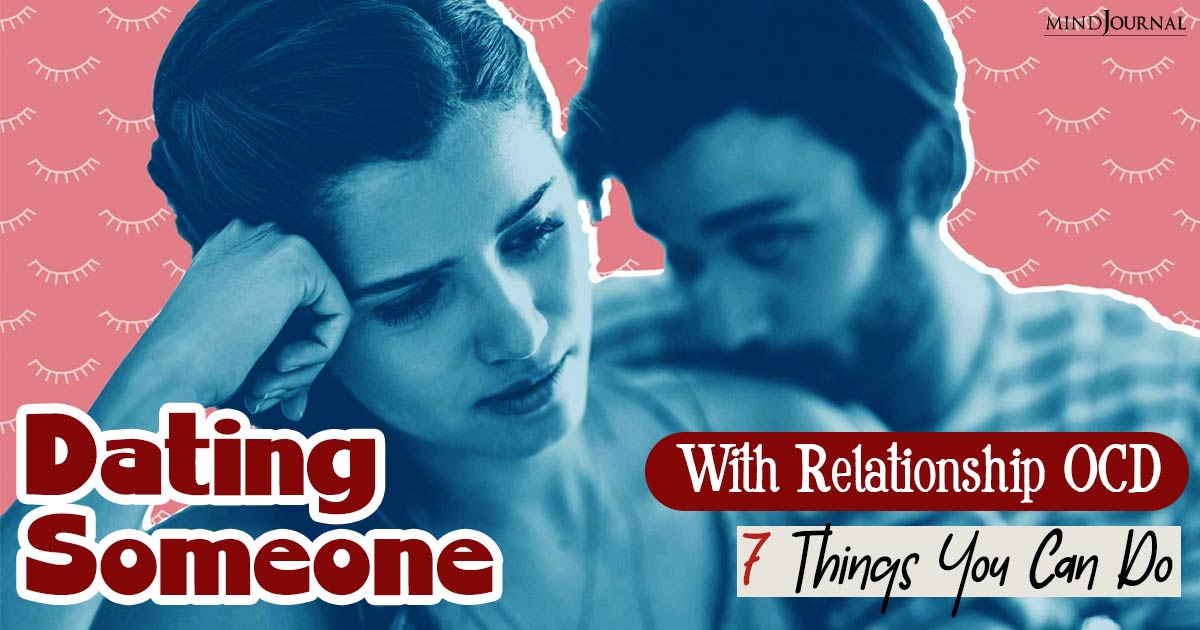
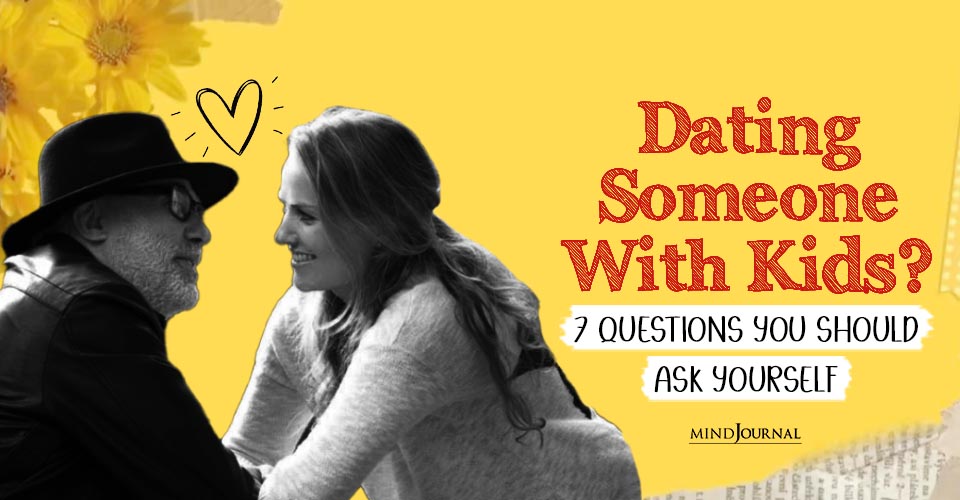


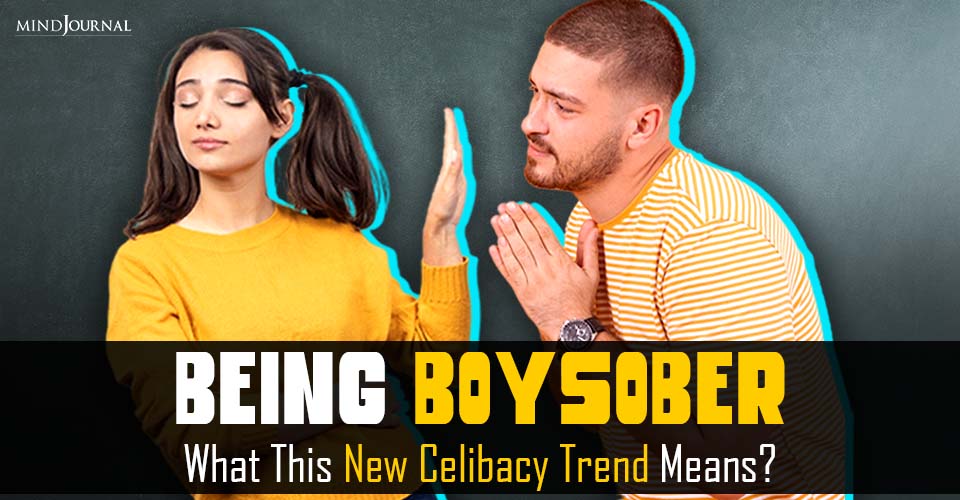
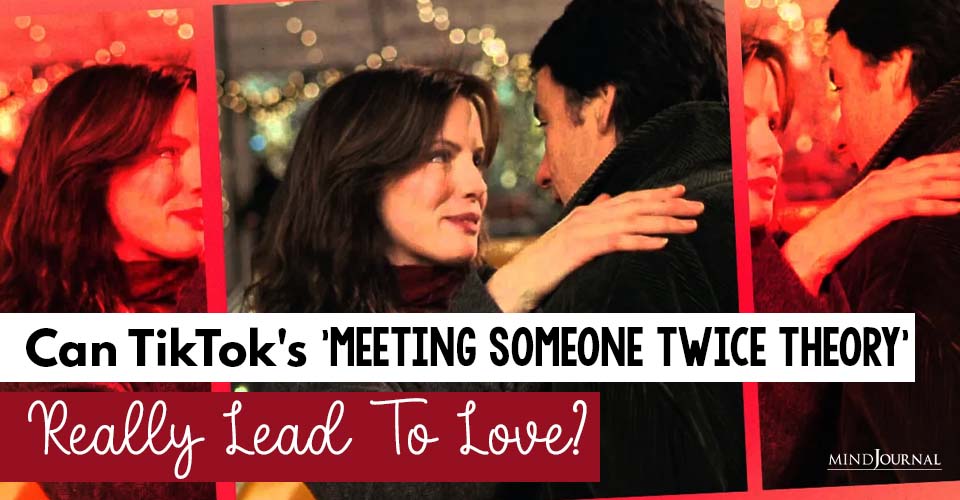

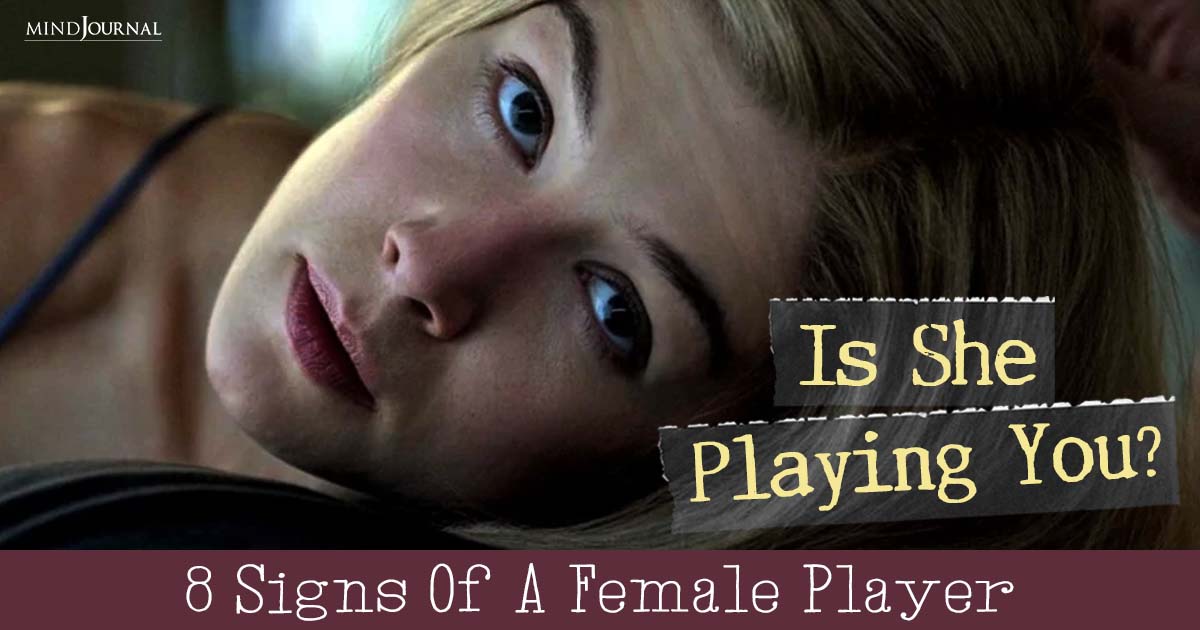
Leave a Reply